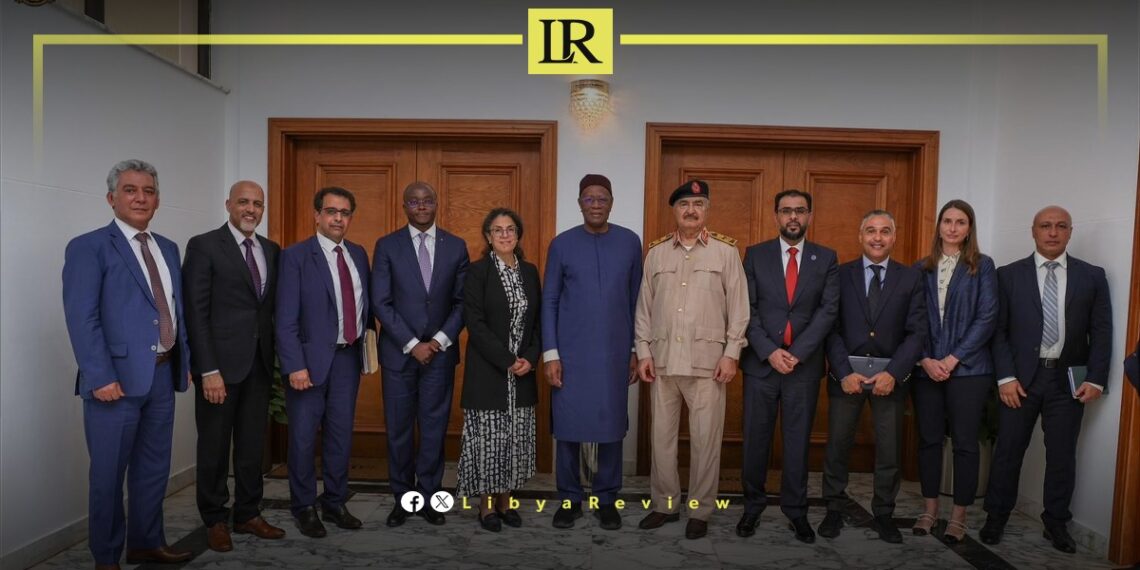On Sunday, the general commander of the Libyan National Army (LNA) Field Marshal Khalifa Haftar hosted a significant meeting with United Nations officials at the LNA’s general command headquarters in Al-Rajma, Benghazi.
The meeting involved Abdoulaye Bathily, the outgoing head of the United Nations Support Mission in Libya (UNSMIL), and Stephanie Khoury, the recently appointed Deputy Head of UNSMIL for Political Affairs.
During the talks, the attendees tackled the recent political developments in Libya and the essential role of UNSMIL in facilitating the country’s move toward holding simultaneous presidential and parliamentary elections. These elections are seen as crucial for fulfilling the aspirations of the Libyan people for a democratic governance system.
On his part, Haftar expressed his gratitude to Bathily for his dedication and leadership in supporting Libya during his tenure with UNSMIL. He also welcomed Khoury, wishing her success in her new and crucial role.
The session was attended by notable Libyan figures, including Osama Hammad, the Prime Minister of the Parliament-designated government, along with top military officials like Major General Saddam Haftar. This underscores the broad engagement of Libyan leadership in the dialogue.
The meeting underscores a broader context of international and local efforts to stabilize Libya, which has been mired in conflict since the 2011 overthrow of Muammar Gaddafi.
This instability led to a fragmented state with multiple factions vying for power, thereby complicating the political and military landscape. UNSMIL has played a critical role in mediating among these factions, promoting political dialogue, and facilitating reconciliation.
Libya’s journey towards establishing a legitimate electoral process has been marked by delays and disputes, emphasizing the need for ongoing support and mediation by entities like the UN. The anticipated elections are expected to restore legitimacy and unity to the Libyan government, which is currently divided between the UN-recognized Government of National Accord in Tripoli and rival authorities in the east.
The international community, through missions like UNSMIL, remains committed to assisting Libya in navigating its political deadlock. Efforts by the mission include brokering ceasefire agreements, supporting economic reforms, and ensuring the delivery of humanitarian aid, all of which aim to create a conducive environment for a peaceful and inclusive electoral process.


